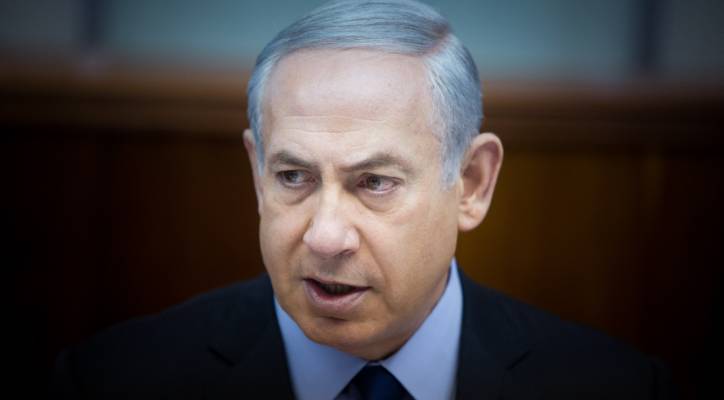The Quartet of Mideast negotiators – the United Nations, US, European Union and Russia – published its latest report in which it blasts Israel for building in Judea and Samaria and compares such construction to terrorism. On the flip-side, and in a first-ever for the Quartet, the report focused heavily on Palestinian incitement.
International mediators trying to promote Mideast peace claimed in a report Friday that Israel’s building in Judea and Samaria is eroding the viability of a Palestinian state and raises “legitimate questions” about its commitment to a two-state solution.
The Quartet of Mideast negotiators — the United Nations, US, European Union (EU) and Russia — also criticized the glorification of Palestinians who commit terrorist attacks against Israel and called on the Palestinian Authority (PA) to “act decisively” to stop incitement to violence and clearly condemn “all acts of terrorism.”
While the Israeli and Palestinian leaders have expressed support for a negotiated two-state solution, the mediators expressed serious concern that continuing on the current course “will make this prospect increasingly remote.”
The Quartet called for immediate steps to reverse three trends that it says are “severely undermining hopes for peace” — Israeli construction in Judea and Samaria; the Palestinians’ lack of unity and Hamas’ illicit arms build-up and militant activity in Gaza; and continuing Palestinian terrorist attacks against civilians and incitement to violence.
Without urgent action, the Quartet warned that “a one-state reality of perpetual occupation and conflict” will become entrenched, which “is incompatible with realizing the national aspirations of both peoples.”
Judea and Samaria is home to over 400,000 Israelis.
The Quartet, which is supposed to guide the two parties to peace, had been sidelined in peacemaking efforts, which the United States has led. But following Secretary of State John Kerry’s failure to broker a peace agreement in April 2014, the Quartet is now trying to take on a bigger role and give efforts to reach a peace deal much broader international backing.
In a statement released with the report, the Quartet invited Israel and the Palestinians “to engage with it on implementing its recommendations and creating the conditions for the resumption of meaningful negotiations that resolve all final status issues.”
Diplomats said it is significant that the United States, Israel’s closest ally, was a party to the report.
More Words, No Action
US State Department spokesman John Kirby said “We would be open to having the (UN) Security Council welcome the report.”
But there is no indication the US will support substantive council action, like threatening sanctions on those who fail to implement the report, which could put pressure on both sides to resume negotiations.
The initial response from the Palestinians showed no interest in engaging.
Palestinian official Saeb Erekat said the report, on first reading, “does not meet our expectations” because “it attempts to equalize responsibilities between a people under occupation and a foreign military occupier.”
He said the Palestinians will continue to insist that all previous agreements be implemented with a time frame including “a full cessation of Israeli settlement activities.” He urged the international community to support the French initiative for an international conference to spur peace efforts and the 2002 Arab peace initiative which promised peace and recognition of Israel in exchange for the creation of a Palestinian state.
Israeli Prime Minister Benjamin Netanyahu’s office said the government will continue to strive for a negotiated peace based on two states for two peoples and “will discuss with the Quartet envoys ways to explore moving toward this end.”
His office welcomed “the Quartet’s recognition of the centrality of Palestinian incitement and violence to the perpetuation of conflict.” In the 24 hours before the report was published, Palestinians carried out three attacks on Israelis leaving two dead and others wounded and the government said the Palestinians didn’t condemn them, instead referring to one attacker as a “martyr.”
Netanyahu’s office strongly rejected “the myth that Israeli construction in the West Bank is an obstacle to peace.” The government also rejected “any attempt to draw moral equivalence between construction and terrorism.”
“In previous agreements, Israel and the Palestinians committed to discuss every difficult issue exclusively through direct, bilateral negotiations. Nevertheless, the record shows a history of repeated Palestinian rejections of offers to negotiate and compromise with Israeli governments across the political spectrum. Israel cannot negotiate peace with itself,” the statement said.
“Israel rejects any attempt to draw moral equivalence between construction and terrorism. So too, do we reject the parallels suggested between the campaign of Palestinian terrorism and the violence of marginal elements in Israeli society. The former is lauded by the Palestinian leadership. The latter is utterly condemned and rejected by Israelis across the board,” the statement added.
In other recommendations, the mediators urged the Palestinians to end the rift between PA head Mahmoud Abbas’ Fatah movement and the Islamic Hamas terror group in the Gaza Strip.
“Gaza and the West Bank should be reunified under a single, legitimate and democratic Palestinian authority,” the Quartet said.
It called for an end to the illicit arms buildup and militant activity by Hamas and urged Israel to accelerate access and movement to and from Gaza.
By: AP and United with Israel Staff
